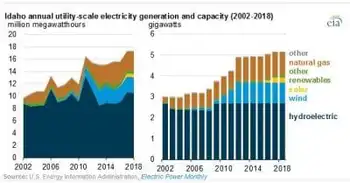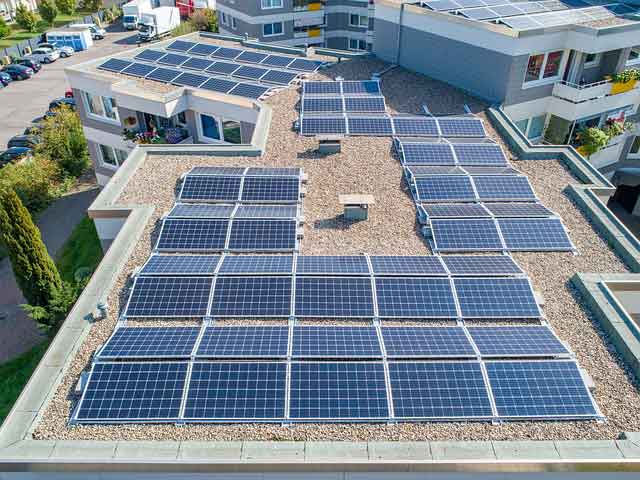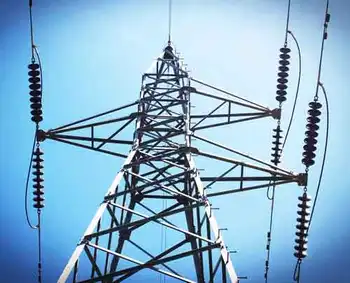Omnidian Acquisition of Solar Service Guys accelerates global expansion in renewable energy, enhancing solar maintenance and remote monitoring across Australia and the U.S., boosting performance management, uptime, and ROI for residential and commercial systems.
Key Points
Omnidian acquired Solar Service Guys to expand in Australia, unifying O&M and monitoring to boost solar performance.
✅ Expands Omnidian into Australia's high-adoption solar market.
✅ Integrates largest Aussie solar service network for O&M scaling.
✅ Enhances remote monitoring, uptime, and ROI for PV owners.
In a strategic move aimed at boosting its presence in the global renewable energy market, Seattle-based Omnidian has announced the acquisition of Australia's Solar Service Guys. This acquisition marks a significant step in Omnidian's expansion into Australia, one of the world’s leading solar markets, and is expected to reshape the landscape of solar panel services both in the U.S. renewables market and abroad.
Founded in 2018, Omnidian is a rapidly growing startup that specializes in managing the performance of solar power systems, ensuring they continue to operate efficiently and effectively. The company provides maintenance services for both residential and commercial solar installations, including in Washington where Avista's largest solar array highlights growing scale, and its proprietary software remotely monitors solar systems to identify any performance issues. By quickly addressing these problems, Omnidian helps customers maximize the energy output of their systems, reducing downtime and increasing the return on investment in solar power.
The company’s acquisition of Solar Service Guys, Australia’s largest solar service network, is a clear indication of its ambition to dominate the renewable energy sector globally, amid consolidation trends like TotalEnergies' VSB acquisition across Europe, that signal accelerating scale. The Australian company, which has been operational since 2006, has built a strong reputation for providing high-quality solar panel services across the country. By integrating Solar Service Guys into its operations, Omnidian plans to leverage the Australian company’s deep industry expertise and established network to extend its service offerings into Australia’s solar market.
The acquisition could not come at a better time. Australia, with its vast sun-drenched landscapes, is one of the world’s leaders in solar energy adoption per capita, even as markets like Canada's solar lag persist by comparison. The country has long been at the forefront of renewable energy development, and this acquisition presents a significant opportunity for Omnidian to tap into a booming market where solar power is increasingly seen as a primary energy source.
With the deal now finalized, Solar Service Guys will operate as a fully integrated subsidiary of Omnidian. The merger will not only strengthen Omnidian’s service capabilities but will also enhance its ability to provide comprehensive solutions to solar system owners, ensuring their panels perform at peak efficiency over their lifetime. This is particularly important as solar energy continues to grow in popularity, with more residential and commercial properties opting for solar installations as a means to lower energy costs and reduce their carbon footprints.
The acquisition also underscores the growing importance of solar energy maintenance services. As the adoption of solar panels continues to rise globally, including in Europe where demand for U.S. solar gear is strengthening, the need for ongoing monitoring and maintenance is becoming increasingly vital. Solar energy systems, while relatively low-maintenance, do require periodic checks to ensure they are functioning optimally. Omnidian’s software-based approach to remotely detecting performance issues allows the company to quickly identify and address potential problems before they become costly or result in significant energy loss.
By expanding its reach into Australia, Omnidian can now offer its services to an even broader customer base, positioning itself as a key player in the renewable energy market. The Australian solar market is projected to continue its growth trajectory, with many homeowners and businesses in the country looking to make the switch to solar power in the coming years.
In addition to expanding its geographic footprint, Omnidian’s acquisition of Solar Service Guys aligns with its broader mission to support the global transition to renewable energy. As governments worldwide push for cleaner energy alternatives and new projects like a U.S. clean energy factory accelerate domestic supply chains, companies like Omnidian are playing an essential role in making solar power a more reliable and sustainable option for consumers.
With the backing of Solar Service Guys’ extensive network and experience, Omnidian is poised to deliver even greater value to its customers, as industry transactions like Canadian Solar's plant sale underscore active market realignment. The acquisition will also help the company strengthen its technological capabilities, improve its service offerings, and accelerate its mission to create a more sustainable energy future.
As Omnidian continues to grow, the company’s success will likely serve as a model for other startups in the renewable energy sector. By focusing on performance management, expanding its service offerings, and leveraging cutting-edge technology, Omnidian is well-positioned to lead the way in the next generation of solar energy solutions. The future looks bright for Omnidian, and with this acquisition, it is well on its way to becoming a dominant force in the global solar market.
Omnidian’s acquisition of Solar Service Guys marks a significant milestone in the company’s quest to revolutionize the renewable energy industry. By expanding into Australia and enhancing its service capabilities, Omnidian is not only strengthening its position in the market but also contributing to the global push for cleaner, more sustainable energy solutions. As the world continues to embrace solar power, companies like Omnidian will be essential in ensuring that solar systems operate at peak efficiency, helping customers maximize the benefits of their investment in renewable energy.
Related News












